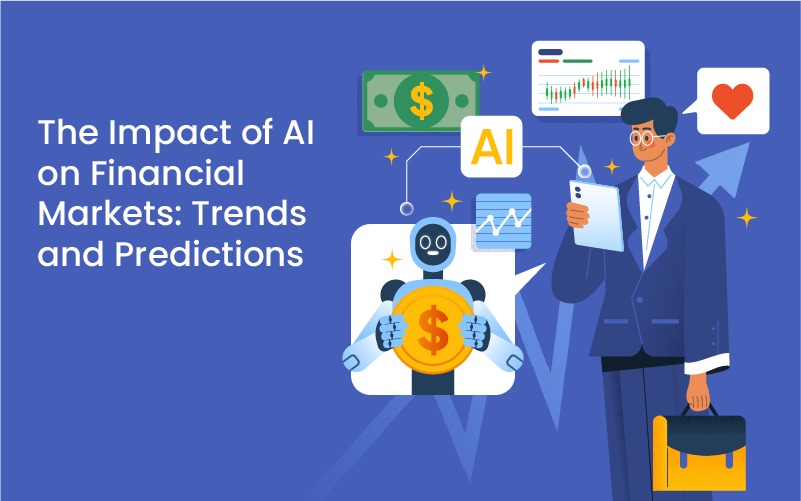Artificial Intelligence (AI) is revolutionizing the financial industry, reshaping the way markets operate, decisions are made, and investments are managed. From algorithmic trading to predictive analytics, AI’s capabilities are transforming traditional financial systems. In this article, we explore the key trends, challenges, and predictions for the role of AI in financial markets as we move into 2025.
Key Trends in AI for Financial Markets
1. Algorithmic Trading Dominance
AI-driven algorithms are becoming the backbone of modern trading platforms. These systems can analyze massive datasets in real-time, identify profitable opportunities, and execute trades faster than human traders. By 2025, algorithmic trading is expected to account for over 70% of global trading volume.
2. AI-Powered Predictive Analytics
Financial institutions are leveraging AI-powered predictive analytics to forecast market trends and investor behavior. Machine learning models analyze historical data and market patterns to provide actionable insights, allowing traders to make informed decisions and minimize risks.
3. Enhanced Risk Management
AI is playing a critical role in risk management by detecting anomalies, identifying potential fraud, and improving regulatory compliance. Financial institutions use AI to monitor transactions, predict risks, and safeguard investments, creating a safer financial environment.
4. Automated Investment Platforms
Robo-advisors and AI-driven investment platforms are becoming popular among retail and institutional investors. These tools offer personalized investment strategies, optimize portfolios, and help individuals achieve their financial goals with minimal human intervention.
5. Sentiment Analysis for Market Insights
AI tools now analyze news articles, social media trends, and public sentiment to gauge the market’s direction. By understanding investor sentiment, traders can anticipate price movements and market shifts more effectively.
Predictions for AI in Financial Markets by 2025
1. Wider Adoption of AI in Emerging Markets
AI adoption will expand beyond major economies to emerging markets, allowing developing countries to leverage advanced financial tools and solutions.
2. AI Integration with Blockchain Technology
The combination of AI and blockchain will enhance transparency, automate contracts, and improve security in financial markets. Smart contracts powered by AI will ensure seamless and efficient financial transactions.
3. Personalized Financial Services
AI will enable hyper-personalization in financial services, offering tailored investment advice, loan options, and wealth management plans based on individual preferences and behavior.
4. Improved Fraud Detection and Prevention
As cyber threats evolve, AI will play a central role in identifying and preventing fraud. Advanced machine learning models will detect suspicious activities in real time, safeguarding financial systems.
5. AI-Driven Market Predictions
AI will continue to evolve in its ability to forecast market trends accurately. By analyzing global economic indicators, political events, and financial data, AI tools will offer advanced predictions to help traders make smarter decisions.
Challenges of AI in Financial Markets
1. Regulatory Concerns
As AI systems become more prevalent, financial institutions face regulatory challenges. Governments will need to adapt policies to monitor AI usage in financial decision-making processes.
2. Data Privacy and Security
AI systems require vast amounts of data for training, raising concerns about data privacy and cybersecurity. Ensuring secure storage and responsible data usage will remain a challenge.
3. Ethical Concerns and Job Displacement
AI’s automation capabilities may reduce the demand for traditional financial roles. Ethical concerns about AI-driven decision-making will need to be addressed to balance technology with human oversight.
Conclusion
AI is reshaping financial markets, driving efficiency, accuracy, and innovation. As we approach 2025, the integration of AI in trading, risk management, and investment platforms will continue to grow, offering immense opportunities and addressing critical challenges. Financial institutions, investors, and regulators must adapt to this evolving landscape to harness the full potential of AI.
By embracing AI, the financial industry can navigate a future of smarter, faster, and more secure market operations, making AI a cornerstone of financial success.

